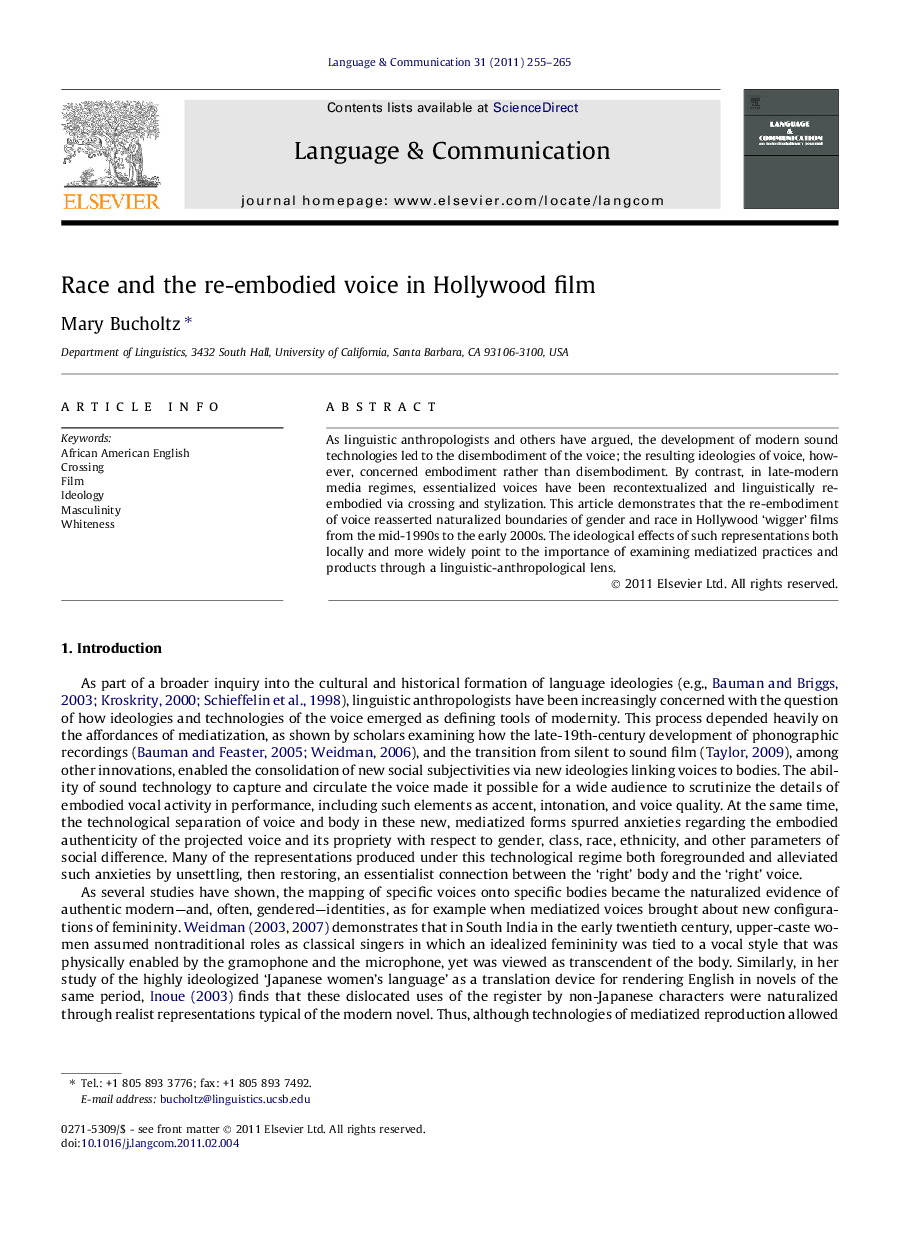| Article ID | Journal | Published Year | Pages | File Type |
|---|---|---|---|---|
| 934999 | Language & Communication | 2011 | 11 Pages |
As linguistic anthropologists and others have argued, the development of modern sound technologies led to the disembodiment of the voice; the resulting ideologies of voice, however, concerned embodiment rather than disembodiment. By contrast, in late-modern media regimes, essentialized voices have been recontextualized and linguistically re-embodied via crossing and stylization. This article demonstrates that the re-embodiment of voice reasserted naturalized boundaries of gender and race in Hollywood ‘wigger’ films from the mid-1990s to the early 2000s. The ideological effects of such representations both locally and more widely point to the importance of examining mediatized practices and products through a linguistic-anthropological lens.
